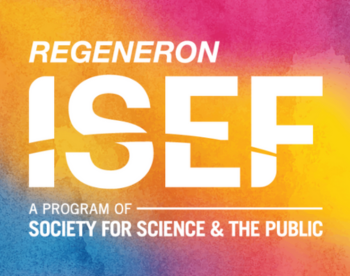35 Social Science Research Topics for High School Students
[elementor-template id="1670"]
Social science research is a discipline dedicated to exploring human societies and their complex phenomena. Through systematic methodologies and theoretical frameworks, this field analyzes various societal issues to uncover deep mechanisms of social patterns, cultural transformations, and policy impacts.
The domain of social science research includes interdisciplinary studies spanning sociology, psychology, anthropology, political science, economics, and history. In this field, data can be derived from qualitative research methods like interviews and surveys or through quantitative means such as experiments and statistical analysis, providing a comprehensive perspective on complex social phenomena.
Social science research aids in understanding how societies operate, tackle challenges, and promote positive change. Whether addressing urban housing issues, analyzing the impact of technology on interpersonal relationships, or evaluating the effectiveness of educational reforms, social science research plays a vital role in shaping a more equitable and inclusive society.
For high school students, social science research offers a new way of seeing the world. It cultivates critical thinking, data analysis abilities, and social insight, while also encouraging them to engage with real-world problems and propose solutions. This type of research not only lays a foundation for students' future career development but also helps them become more responsible and socially aware citizens.
In this edition, mentors from Embark have thoughtfully selected 35 significant research topics covering aspects such as social behavior, cultural evolution, and policy impacts. These topics will guide you in exploring the complexities and diversities of human society, helping you understand the profound connections between people and society, culture and power. By investigating these topics, you will be able to view social phenomena from new perspectives and gain insights into the driving forces of social change.
Urbanization and Community Development
Urbanization and community development are multi-dimensional topics that not only entail the expansion of physical urban spaces but also the transformation of social structures and cultural identities. As urbanization progresses, many communities face issues such as the displacement of original residents and a decline in community cohesion. For instance, in the redevelopment of old cities, commercial interests often overshadow residents' housing needs and the historical value of the community. Therefore, urban planning must holistically consider economic, social, and environmental factors to ensure the sustainable development of communities. This necessitates that planners apply sociological theories to understand community needs and environmental science to maintain ecological balance, thus protecting and enhancing community well-being during urbanization. By studying urbanization and community development, high school students can learn basic principles of urban planning and understand how to design and implement sustainable urban development projects.Potential research directions include:
1.Community Rebuilding Strategies in the Revitalization of Detroit
2.Seattle's Homelessness Issue and Community Response
3.Impact of Green Spaces on Community Health in New York City
4.Environmental Impact of Urban Expansion in Los Angeles
5.Social and Economic Benefits of Community Gardens in Boston
6.Community Adaptation Strategies to the Urban Heat Island Effect in Chicago
Educational Inequality and Policy Analysis
Educational inequality and policy analysis reveal the profound impact of unequal distribution of educational resources on social mobility. Studies indicate that a lack of educational resources is one of the primary causes of the cycle of poverty. In the United States, schools in low-income areas often lack quality teachers and teaching facilities, directly affecting students' academic performance and future employment opportunities. Policies such as “Teacher Incentive Programs” can enhance teacher motivation and improve teaching quality, thereby narrowing the educational gap. By studying educational policy, sociology, and data analysis, high school students can better understand the roots of these issues and explore how policy interventions can improve educational equity and quality.Potential research directions include:
7.Student Performance Post-Education Reform in New Orleans
8.Impact of School Underfunding on Educational Equity in Philadelphia
9.Effectiveness of Bilingual Education Programs in Houston
10.Application of Technology in Education in Baltimore
11.Equity of Special Education Services in Cleveland
12.Educational Inequality and School Segregation in San Diego
Consumer Behavior and Market Trends
Research into consumer behavior and market trends reveals that consumers' decision-making processes are influenced by a variety of factors, including personal preferences, social influences, and technological advancements. The rise of social media, in particular, has transformed consumer shopping habits, making word-of-mouth marketing a crucial tool for companies in promoting their products. By studying market analysis, psychology, and economics, high school students can develop business acumen and decision-making skills.Potential research directions include:
13.Impact of Walmart's Online Shopping on Rural Markets
14.Consumption Trends of Apple Products Among American Teenagers
15.Acceptance of Tesla Electric Vehicles in the U.S. Market
16.Transformation of the U.S. Retail Industry Under Amazon's Influence
17.Role of Starbucks in Urban Communities
18.Impact of Airbnb on the U.S. Tourism Industry
Immigration Policy and Social Integration
Research on immigration policy and social integration highlights the importance of inclusive policies in promoting societal harmony. For instance, Canada's multicultural policy encourages immigrants to maintain their cultural traditions while fostering interaction and understanding among people from different cultural backgrounds. Such policies help build a diverse and harmonious society. In this field, high school students can explore cross-cultural research strategies and learn how policies can promote harmony among people from diverse cultural backgrounds, thus broadening their global perspective.Potential research directions include:
19.Study of the Impact of the DACA Policy on Young Immigrants in Texas
20.Socioeconomic Adaptation of Cuban Immigrants in Florida
21.H-1B Visa Holders in Silicon Valley's Tech Industry
22.Social Impact of Arizona's Border Security Policies
23.Contribution of Immigrant Entrepreneurship to New Jersey's Economy
24.Immigrants and Language Barriers in North Carolina
25.Support Systems for Refugee Integration in Massachusetts
[elementor-template id="1677"]
Public Health Policy and Health Inequality
Research into public health policy and health inequality reveals the impact of socioeconomic status on health outcomes. Low-income groups often face higher risks of disease and poorer health outcomes, partly due to a lack of adequate medical resources and healthy lifestyle options. Implementing universal healthcare and improving public health education can effectively reduce these health disparities. By learning the fundamentals of public health, high school students can understand how health policies influence population health outcomes and acquire essential data analysis skills.Potential research directions include:
26.Public Health Response Strategies in New Orleans Post-Hurricane
27.Impact of the Flint Water Crisis on Residents' Health in Michigan
28.Access to Healthcare Services for the Uninsured in California
29.Study of Health Inequalities Among Alaska Natives
30.Impact of the Opioid Crisis on Public Health in Maine
31.Accessibility of Medical Resources in Rural Oklahoma
32.Management of Chronic Diseases in Hawaii's Pacific Islander Communities
Political Participation and Democratic Practice
Research on political participation and democratic practice indicates that citizen engagement directly influences the effectiveness of democratic systems. For example, declining voter turnout can lead to political decisions that do not fully reflect the public's will. Education and community activities can enhance citizens' understanding of and participation in political processes. In studying political participation and democratic practice, high school students can learn the basics of political science and understand the mechanisms of democracy.Potential research directions include:
33.The Role of Social Media in the 2020 U.S. Presidential Election
34.Empirical Study on Voter Suppression in Ohio
Gun Control Debate Following Campus Shootings in Wisconsin
You can view more Social Science research topics for high school students here.
Embark Exploration Program
Since its inception in 2016, Embark has focused on designing tailored scientific research training programs for teenagers, aiming to ignite their research potential. Our core team members are graduates from top American universities, possessing deep academic backgrounds and rich educational experience.
Embark brings together over 3,000 outstanding mentors from world-renowned institutions such as the Ivy League, MIT, Caltech, Johns Hopkins University, and Carnegie Mellon University to provide premier research guidance for students.
We offer personalized one-on-one research mentorship, crafting unique research topics based on each student's interests and strengths. Embark not only helps students systematically enhance research skills and build solid research frameworks but also closely integrates research with real-world applications, ensuring students comprehend the value of research. These experiences significantly enhance students' competitive edge in university applications.
For more details, please visit the Embark Exploration Program. If you have any questions or need further information, feel free to contact us. We are more than happy to assist and explore collaboration opportunities.
[elementor-template id="1682"]



